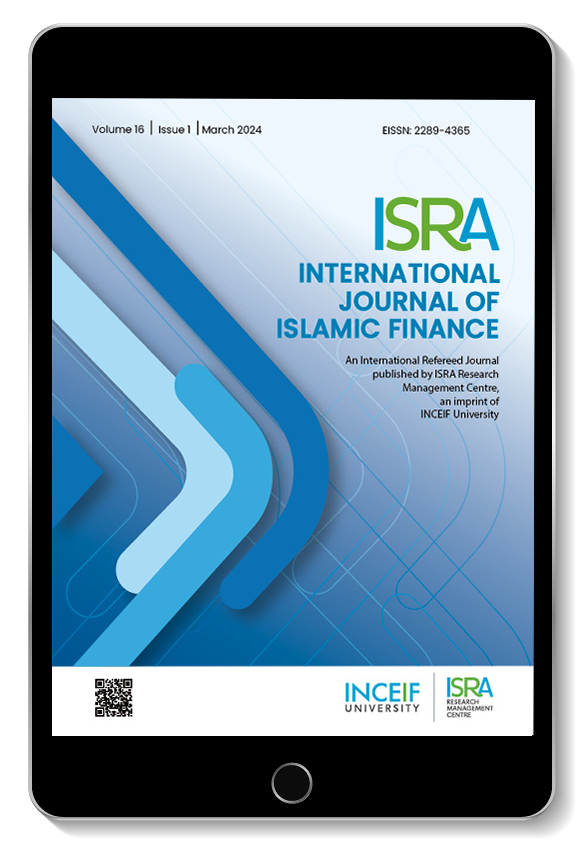马来西亚tavarruq融资实践中伊斯兰银行Sharīah不合规事件调查
IF 1.4
Q2 BUSINESS, FINANCE
引用次数: 11
摘要
目的Tawarruq(伊斯兰商品融资)已发展成为马来西亚伊斯兰银行业中最普遍的概念。尽管如此,tavarruq的广泛使用在其实践中引起了一些Sharīah(伊斯兰法)的担忧。本研究旨在调查马来西亚tavarruq融资实践中的Sharīah不合规(SNC)现象。设计/方法论/方法本研究采用定性研究方法,结合描述性和内容分析。向16家马来西亚伊斯兰商业银行分发了一份自填问卷,以揭示马来西亚伊斯兰银行在应用tavarruq方面的Sharīʿah违规问题。调查结果研究发现,马来西亚tavarruq的一些做法可能不符合Sharīʿah,主要是由于合同顺序不当。研究还发现,IB在处理SNC事件及其产生的收入时采用了不同的方法。最后,该研究指出,董事会/管理层对Sharīah的某些决定,特别是对非-ḥalāl(不允许的)收入。实际含义该研究的结果可作为行业参与者和监管机构制定塔瓦鲁克实践Sharīʿah不合规风险管理框架的参考。独创性/价值塔瓦鲁克实践中对SNC问题的调查是现有文献中的第一次。本文章由计算机程序翻译,如有差异,请以英文原文为准。
Survey on Sharīʿah non-compliant events in Islamic banks in the practice of tawarruq financing in Malaysia
Purpose
Tawarruq (Islamic commodity financing) has evolved as the most ubiquitous concept in Malaysia’s Islamic banking industry. Nevertheless, the extensive use of tawarruq has invoked a number of Sharīʿah (Islamic law) concerns in its practice. This study aims to investigate the Sharīʿah non-compliant (SNC) phenomena in the practice of tawarruq financing in Malaysia.
Design/methodology/approach
This study adopts qualitative research methodology, combining both descriptive and content analysis. A self-administered questionnaire was distributed to 16 Malaysian Islamic commercial banks to unveil the Sharīʿah non-compliance issues in the application of tawarruq in Islamic banks (IBs) in Malaysia.
Findings
The study found that some practices of tawarruq in Malaysia might not comply with the Sharīʿah, mainly due to the improper sequencing of contracts. The study also discovered that IBs adopt different approaches in dealing with SNC events and the income derived therefrom. Finally, the study noted the influence of board of director/management on certain Sharīʿah decisions particularly on the treatment of non-ḥalāl (impermissible) income.
Practical implications
The findings of the study serve as a reference to industry players and regulators in formulating a Sharīʿah non-compliance risk management framework for tawarruq practices.
Originality/value
The survey on SNC issues in tawarruq practice constitutes the first of its kind in the existing literature.
求助全文
通过发布文献求助,成功后即可免费获取论文全文。
去求助
来源期刊

ISRA International Journal of Islamic Finance
BUSINESS, FINANCE-
CiteScore
3.40
自引率
17.40%
发文量
18
审稿时长
20 weeks
期刊介绍:
It is the aspiration of the editorial committee that IJIF achieves the highest rank in quality and substance. It is thus our aim that the journal be carried in the Thompson Reuters’ ISI and Scopus databases. By ensuring high standards in articles published in Islamic finance we ensure that further innovation and research is carried out and promoted in the Islamic finance industry and academia. IJIF publishes 2 issues per annum.
 求助内容:
求助内容: 应助结果提醒方式:
应助结果提醒方式:


